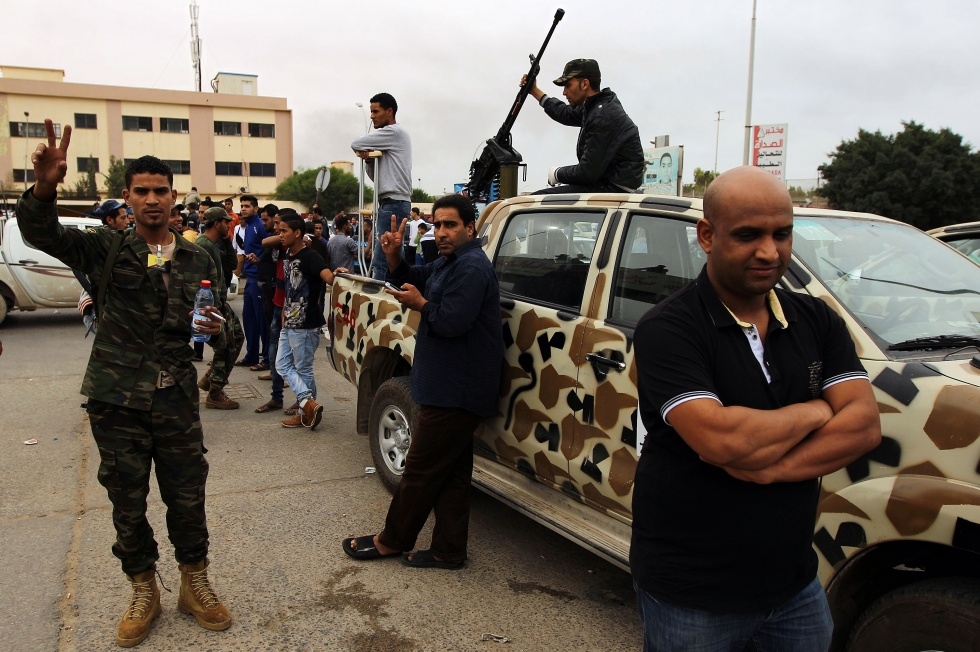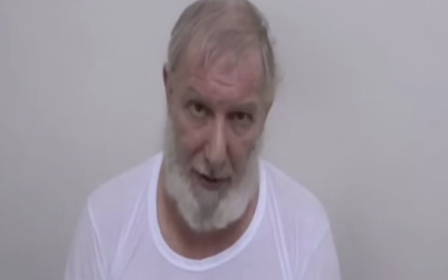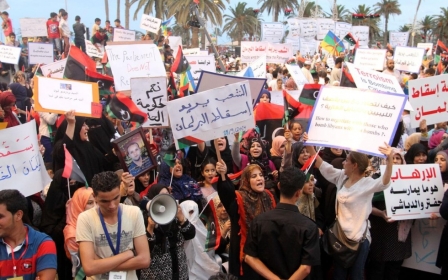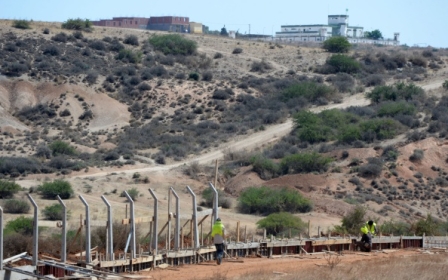14 Libyans killed in clashes over the weekend in Benghazi

Violence continued to rock Benghazi on Saturday, with 14 soldiers killed and 50 wounded in two days of fighting.
The troops, members of renegade general Khalifa Haftar's Operation Dignity campaign, were killed in clashes with Islamic State supporters Ansar al-Shariah and the Islamist coalition Benghazi Revolutionaries’ Shura Council (BRSC), who have been fighting for control of the city for months.
Mohamed al-Hejazi, a spokesman for Haftar, said the Islamists' offensive on the Benina airport outside Benghazi had been stopped with the help of air power.
"They tried taking the airport, but we won't allow this," he said.
Islamist groups have already taken over a number of army bases in Benghazi and there have been reports of sporadic violence across the city.
There have also been reports of suicide bomb attacks against Haftar's forces, who have been hitting Islamist targets with airstrikes, including the headquarters of the February 17th Martyrs Brigade, another Islamist group organised under the banner of the BRSC.
Among those killed in the clashes was Abdullah Kabsa, an Ansar al-Sharia commander.
Hafter launched Operation Dignity in May with the intention of driving Islamist groups out of Benghazi, receiving a mixed response from politicians in the House of Representatives.
Saturday's assault came shortly before the announcemet that British teacher David Bolam had been released after being held hostage for five months in Benghazi by another Islamist group, Jeish al-Islam.
The European Union on Saturday said it was "concerned" over the rising violence in the city.
“The European Union is concerned by the growing number of victims of violence in Benghazi, and condemns the recent suicide bombings, targeted assassinations, and clashes between armed groups,” an EU spokesperson said in Brussels.
“The continuation of the fighting poses a serious threat to the security and stability of the country and the wider region,” he added.
The EU urged leaders in the country to engage in the political process.
“The only way to address the inherent differences and secure a peaceful future for all.”
The spokesperson called on the groups to “participate constructively in the peace talks, under the auspices of the United Nations Mission of Support in Libya” and welcomed “the courage and conviction of those who come to the negotiating table.”
The cradle of the uprising against Gaddafi, Benghazi is now regularly the scene not only of fighting but also the murders of members of the security forces, political activists and journalists.
New MEE newsletter: Jerusalem Dispatch
Sign up to get the latest insights and analysis on Israel-Palestine, alongside Turkey Unpacked and other MEE newsletters
Middle East Eye delivers independent and unrivalled coverage and analysis of the Middle East, North Africa and beyond. To learn more about republishing this content and the associated fees, please fill out this form. More about MEE can be found here.




